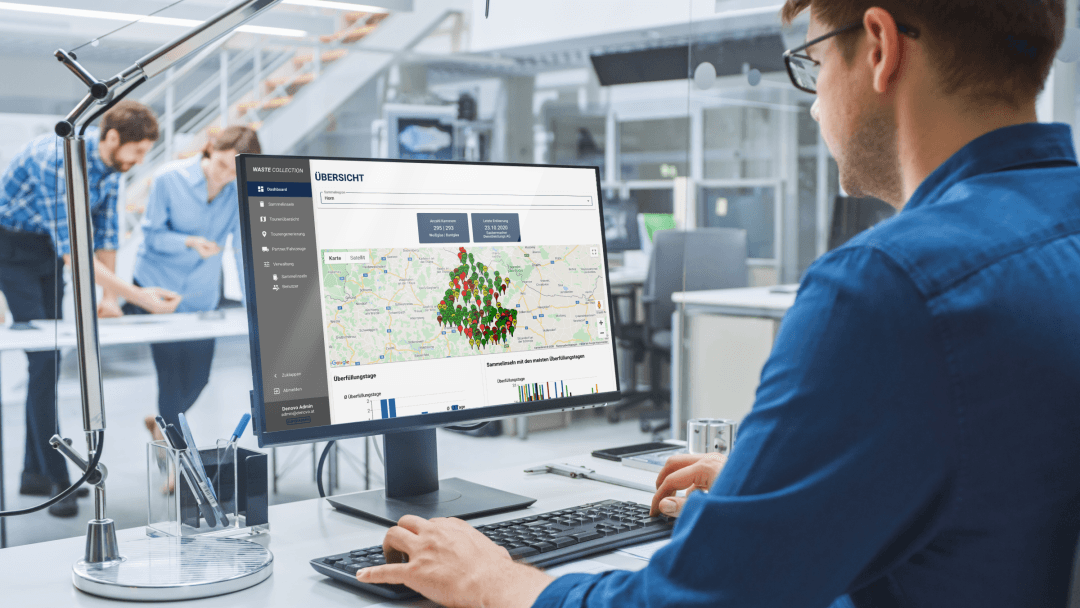Circular Economy
/
May 31, 2023
AI in waste management: A revolution in waste management

The role of artificial intelligence (AI) has evolved from science fiction fantasies and experimental lab projects to a real-world player with a wide range of measurable impacts in a wide variety of industries. In the process, AI has found its way into some of the most important areas of our lives. One of the most promising industries in this regard is definitely the circular economy. In the following, we will highlight a few sub-sectors of the waste management industry that have already undergone a significant transformation through AI in recent years, which is likely far from over.
Efficient sorting and collection of waste
Automation, which has long had its place in waste management, has once again been accelerated in its evolution by AI. The ability to sort waste efficiently is one of the many improvements AI has contributed to the industry's development. AI-controlled robots can achieve a level of accuracy denied to human waste sorters. AI can identify and sort a wide variety of materials, increasing the amount of material recycled while minimizing waste. Additionally, AI models can optimize waste collection by suggesting efficient routes for garbage trucks, taking into account factors such as traffic, weather, and the amount of waste collected.
Denovo has already been able to implement some exciting projects in this area. Among other things, the company is responsible for the digital implementation of Saubermacher's Waste Collection Portal, where, with the help of fill level sensors in the waste garbage cans, dynamic route planning can be efficiently designed and routes automatically created. (https://denovo.at/case-studies/waste-collection-portal/)
Prediction and management of waste streams
Away from direct interaction with waste, AI can also be used to predict and manage waste streams. AI algorithms can identify patterns in the amounts of waste generated and make predictions for future waste volumes. This information can be used to make decisions about resource use, collection scheduling, and recycling facility capacity.
With the Waste Output Management Tool, Denovo is also moving forward in this sub-area. With the output planning tool, Denovo has created an innovative solution for digitizing material flows within a recycling company. As possible extensions, reporting and BI solutions can be connected, and the economic key figures of the respective orders can be evaluated. (https://denovo.at/case-studies/waste-output-management/)
AI and Circular Economy
The circular economy aims to maximize the life of materials through reuse and recycling and minimize waste. AI can make this process more efficient by identifying which materials can be reused and which should go into the recycling process. This can maximize the use of resources while minimizing environmental impact.
With sensors installed in the garbage trucks, Denovo's recyclable material scanner can analyze the composition of the waste in a fraction of a second as it is being poured into the garbage truck and provide reliable conclusions about the quality of separation. A very good start, but definitely not the end of the possibilities, for AI in this area. (https://denovo.at/case-studies/wertstoffscanner/)
Overall, AI has the potential to revolutionize circular and waste management. It makes it possible to optimize processes and reduce costs while improving environmental performance. In addition, AI can help pave the way for more sustainable and efficient waste management. It will be exciting to see how this technological development progresses and impacts even more areas of our lives. An exciting era of innovation and environmental awareness is upon us. Denovo is happy to take on the challenges this brings!

